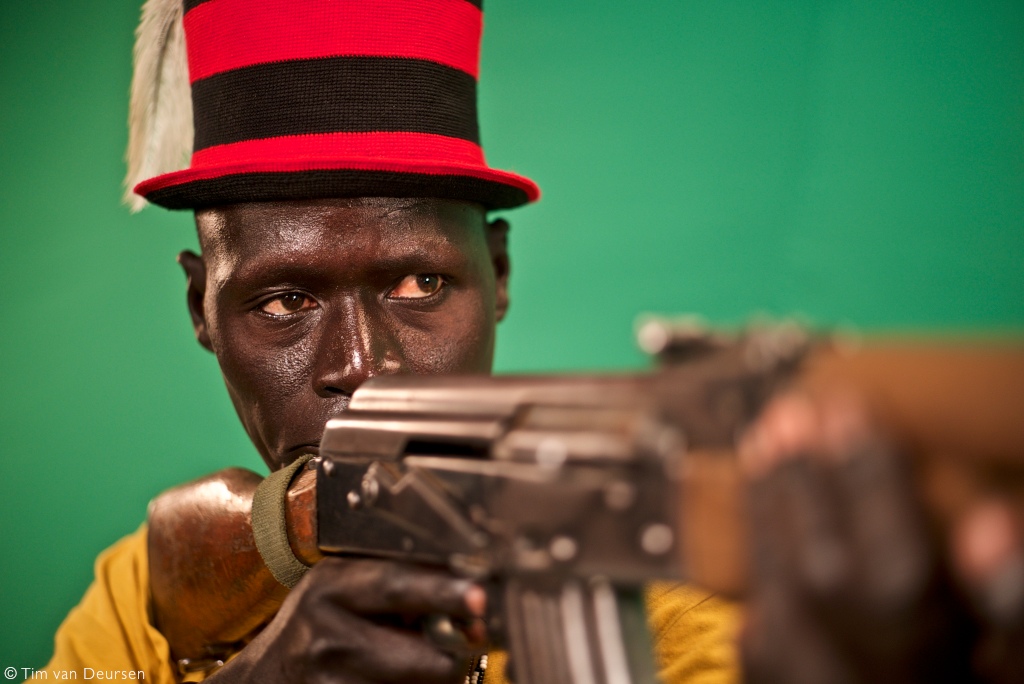
This is the inspirational story of how a virtual reality platform is being used to create peace amongst warring tribes in Uganda.
In the Karamoja region of northeast Uganda, residents have had to deal with violence for decades. Water and food shortages create tension between the different tribes and violence can flare up at any moment. Many lives, particularly those of warriors, have been lost by feuding tribes. For many of the antagonists, reconciliation seems impossible – so much suffering has been inflicted on all sides that the culture of revenge and animosity is almost impossible to change.
Two of the warring tribes include the Matheniko and the Tapac peoples, both subgroups of the famous Karamajong cattle pastoralists. Ariko is the leader of the Matheniko, Lomoromoe is from the Tapac. Both of the groups are semi-nomadic pastoralists in an arid area where growing crops is hard to impossible. Livestock, particularly cattle, are of paramount cultural and utilitarian importance to all the Karamajong.
Over the years, traditions of cattle rustling have developed with resultant feuds the origins of which no one can remember. Raids, counterraids and revenge killings are part of the local culture. Yet both the Metheniko and Tapac have very similar lifestyles and priorities. They live basic existences in homes created from branches and clay, they are dependent on cattle and they must survive in the same arid environment.
Bloodshed and cattle raiding has reduced in recent years but tensions and resentment still remain and threaten to spill over in violence at any moment.

A meeting
What if Ariko and Lomoromoe could meet in a neutral, non-threatening space to learn about each other and forget the conflict for a moment? What if they could immerse themselves in each other’s lives? This is what Hack the Planet has facilitated using the latest techniques in the field of 360 / 3D video recordings.
Through the Meet the Soldier project, Akiro and Lomoromoe met each other in a 3D virtual space. They travelled virtually to each other’s villages and learned about the lives – challenges, hardships and cultures of their once mortal enemies.
Virtual Reality (VR) can be an effective tool in helping people relate to and develop empathy for others or unfamiliar situations. Many people view VR as something to do with the entertainment industry, few understand the power it has to change perspectives through experience. VR is experienced by the brain differently than other forms of media. Someone in a virtual environment is more capable of generating empathy for a person or situation because the brain is “fooled” into thinking it’s really experiencing the situation.
One year after the production of Meet the Soldier, a researcher from Sciences PO, a French research institute, wrote a paper investigating the project. The researcher spoke with many people involved, but one response from a local priest who knows both warriors very well was particularly illuminating.
“The two warriors are good friends now. The film has bonded them together. Every time I meet one, he inquires about the other. This is a good sign of friendship. These two warriors who had once been terrible enemies and raiders, who took pleasure in raiding and killing others; now they have abandoned the past and have become “new people”.
Hack the Planet hopes that this concept could be applicable to many other situations and conflicts in the world. What would happen if we could use the approach to bring together leaders of the world or people who live in countries at war? People who don’t have the opportunity to visit wilderness areas could be immersed in the natural world.
Watch the 20-minuteYouTube documentary

About the author and creator of Meet the Soldier
Tim van Deursen developed the concept of ‘Meet the Soldier’ at ‘Hack the Planet’; a technical non-profit he founded in 2016. The company works on innovative solutions to combat global and social challenges. Hack the Planet is part of Q42 and has a complete arsenal of engineers at their disposal. Production and creation of the video were done by Wolfstreet and Teddy Cherim. Tim believes that VR is a powerful tool that could be used to bridge long-lasting conflicts; it provides a safe environment while at the same time the possibility to change perspectives. Follow Hack the planet on Twitter
To comment on this story: Login (or sign up) to our app here - it's a troll-free safe place 🙂.![]()






